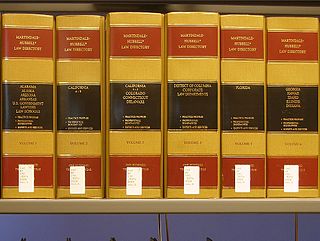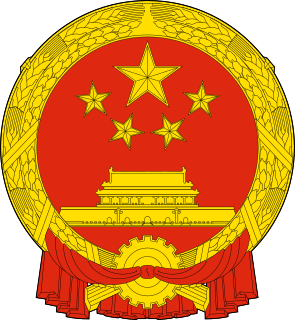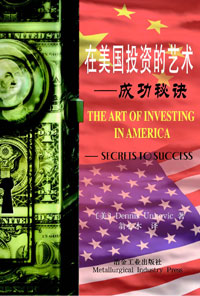
Intellectual property (IP) is a category of property that includes intangible creations of the human intellect. There are many types of intellectual property, and some countries recognize more than others. The most well-known types are copyrights, patents, trademarks, and trade secrets. Early precursors to some types of intellectual property existed in societies such as Ancient Rome, but the modern concept of intellectual property developed in England in the 17th and 18th centuries. The term "intellectual property" began to be used in the 19th century, though it was not until the late 20th century that intellectual property became commonplace in the majority of the world's legal systems.

Business is the activity of making one's living or making money by producing or buying and selling products. Simply put, it is "any activity or enterprise entered into for profit. It does not mean it is a company, a corporation, partnership, or have any such formal organization, but it can range from a street peddler to General Motors."
The following outline is provided as an overview of and topical guide to commercial law:
The National Association of Realtors (NAR), whose member brokers are known as Realtors, is a North American trade association for those who work in the real estate industry. It has over 1.3 million members, including NAR's institutes, societies, and councils, involved in all aspects of the residential and commercial real estate industries. NAR also functions as a self-regulatory organization for real estate brokerage. The organization is headquartered in Chicago.
Intellectual property rights (IPRs) have been acknowledged and protected in China since the 1980s. China has acceded to the major international conventions on protection of rights to intellectual property. Domestically, protection of intellectual property law has also been established by government legislation, administrative regulations, and decrees in the areas of trademark, copyright, and patent. This has led to the creation of a comprehensive legal framework to protect both local and foreign intellectual property. Despite this, copyright violations are common in the PRC, The American Chamber of Commerce in China surveyed over 500 of its members doing business in China regarding IPR for its 2016 China Business Climate Survey Report, and found that IPR enforcement is improving, but significant challenges still remain. The results show that the laws in place exceed their actual enforcement, with patent protection receiving the highest approval rate, while protection of trade secrets lags far behind. Many US companies have claimed that the Chinese government has stolen their intellectual property sometime in 2009–2019.
Intellectual rights to magic methods refers to the legal and ethical debate about the extent to which proprietary or exclusive rights may subsist in the methods or processes by which magic tricks or illusions are performed. It is a subject of some controversy.
Go Out policy is the People's Republic of China's current strategy to encourage its enterprises to invest overseas.

Martindale-Hubbell is an information services company to the legal profession that was founded in 1868. The company publishes the Martindale-Hubbell Law Directory, which provides background information on lawyers and law firms in the United States and other countries. It also published the Martindale Hubbell Law Digest, a summary of laws around the world. Martindale-Hubbell is currently owned by consumer website company Internet Brands.

Milbank LLP is an international law firm headquartered in New York City. It also has offices in Washington, D.C., Los Angeles, London, Frankfurt, Munich, Tokyo, Hong Kong, São Paulo, Seoul, Singapore, and Beijing.
The following outline is provided as an overview of and topical guide to intellectual property:

The Agreement on Trade-Related Aspects of Intellectual Property Rights (TRIPS) is an international legal agreement between all the member nations of the World Trade Organization (WTO). It sets down minimum standards for the regulation by national governments of many forms of intellectual property (IP) as applied to nationals of other WTO member nations. TRIPS was negotiated at the end of the Uruguay Round of the General Agreement on Tariffs and Trade (GATT) between 1989 and 1990 and is administered by the WTO.
A wholly foreign-owned enterprise is a common investment vehicle for mainland China-based business wherein foreign parties can incorporate a foreign-owned limited liability company. The unique feature of a WFOE is that involvement of a mainland Chinese investor is not required, unlike most other investment vehicles.
The laws of Thailand are based on the civil law, but have been influenced by common law.
Iran is a member of the WIPO since 2001 and has acceded to several WIPO intellectual property treaties. Iran joined the Convention for the Protection of Industrial Property in 1959. In December 2003 Iran became a party to the Madrid Agreement and the Madrid Protocol for the International Registration of Marks. In 2005 Iran joined the Lisbon Agreement for the Protection of Appellations of Origin and their International Registration, which ensures the protection of geographical names associated with products. As at February 2008 Iran had yet to accede to The Hague Agreement for the Protection of Industrial Designs.

Paul Goldstein is a law professor at Stanford Law School.

CCPIT Patent & Trademark Law Office is an intellectual property law firm headquartered in Beijing, China. It has over 480 staff including 216 patent and trademark attorneys, among whom 56 are qualified lawyers, and also has around 35 patent engineers. CCPIT Law Office provides prosecution, litigation, administrative enforcement, transaction and consultation services relating to patents, trademarks, copyright, trade secrets, trade dress, domain names, anti-unfair competition, licensing and other intellectual property-related matters.
Cohen & Gresser LLP is an international law firm with offices in New York City, Paris, Seoul, Washington D.C., and London. The firm represents clients in complex litigation and corporate transactions throughout the world. Founded in 2002, the firm has grown to seventy lawyers in eight practice groups: Corporate; Employment; Intellectual Property & Technology; Litigation and Arbitration; Privacy and Data Security; Real Estate; Tax; White Collar Defense. The firm's clients include Fortune 500 companies and major financial institutions across a broad spectrum of industries throughout the world, and it has litigated and negotiated against some of the nation's largest law firms. Among Cohen & Gresser's clients are Goldman Sachs, Samsung Electronics, LG Electronics, Chesapeake Energy, Hyundai Rotem, Southwest Airlines, Bank of America, L’Oréal, and Ghislaine Maxwell.
Shiboleth LLP is a boutique law firm based in midtown Manhattan, in New York City, with an active international practice. The firm has been recognized as having top-ranked practices in corporate, litigation, real estate, high-tech and Intellectual Property (IP). The firm has been active in New York since 1976, and merged with the Heiman Law Group in 2006, creating the largest Israeli-based law firm in North America. The firm maintains two affiliate offices, Shibolet & Co., which is a top-tier law firm in Israel, and a representative office in Shanghai, China, which was the first Israeli law firm in China.
Lee and Li, Attorneys-at-Law is a law firm headquartered in Taipei, Taiwan. Founded in 1965 by James Lee and C. N. Li, the firm has offices in Taipei, Hsinchu, Taichung, and southern Taiwan, with strategic alliances in Beijing and Shanghai. Lee and Li exists to care, serve, and excel. To achieve sustainable operations, it brings together distinguished professionals and creates a platform to share experience, prize innovation and value teamwork.

The Beijing Intellectual Property Court is a Court of special jurisdiction in the People's Republic of China, which handles: "first-instance IP civil or administrative cases with professional features involving patents, new varieties of plants, layout design of integrated circuit, know-how and so on." There are similar courts based in Shanghai and Guangzhou.








